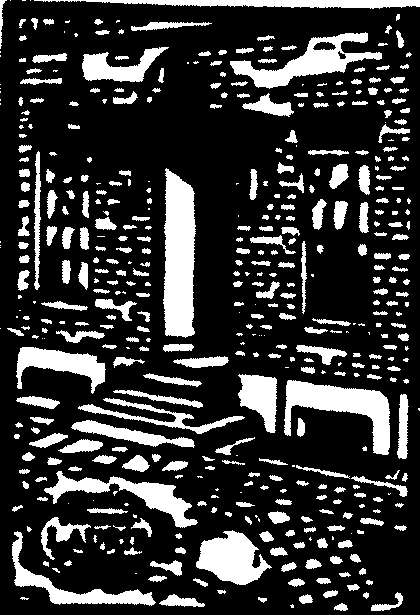
The cover image was created by the transcriber and is placed in the
public domain.

THE COTTAGE ON THE FELLS
CHAPTER I
“WELL,” said Comyns, “I can’t seefor the life of me what makes youwant to linger on in this benighted hole.”
“There are a great many things in thisworld we can’t see,” replied Hellier.
They were standing on the pier at Boulogne,the Folkstone boat was just departing,the east wind was blowing, and over the cold,early spring day the clouds drifted, grey asthe cygnet’s feather.
Without wishing to paraphrase or parodya famous author, one may say that if one goesover to Boulogne and stands long enough onthe pier, one will meet, most possibly, someoneone knows—probably one’s tailor.
Hellier had come over to Boulogne a fortnightago to recruit from an attack of influenza;he was a briefless barrister, with twohundred and fifty pounds a year of his own;his chambers were in Clifford’s Inn, and hehad a taste for that side of life which lendsitself to romantic literature.
The novels of Gaboriau, absorbed as a boy,had given him his first impetus towards thelaw.
There is no manner of doubt in the worldthat housebreaking is the most romantic ofthe professions; after housebreaking, the professionthat helps the housebreaker to escapethe law.
A great criminal lawyer, with his armful ofbriefs, was the pictured objective towardswhich Richard Hellier had set his face; hehad been called to the Bar eighteen monthsnow, and his only client up to this had been adog thief (item, convicted).
“I suppose there are,” replied Comyns,“but there’s one thing I can, the gangway isgoing, so long—”
He dashed down the gangway, the hawserswere cast off, and the screw churned the steelgrey waters of the harbour.
Hellier stood with his hands in his overcoatpockets, watching the boat as she passedfrom sight, and wishing that he was Comyns.
Comyns was handsome, Comyns waswea